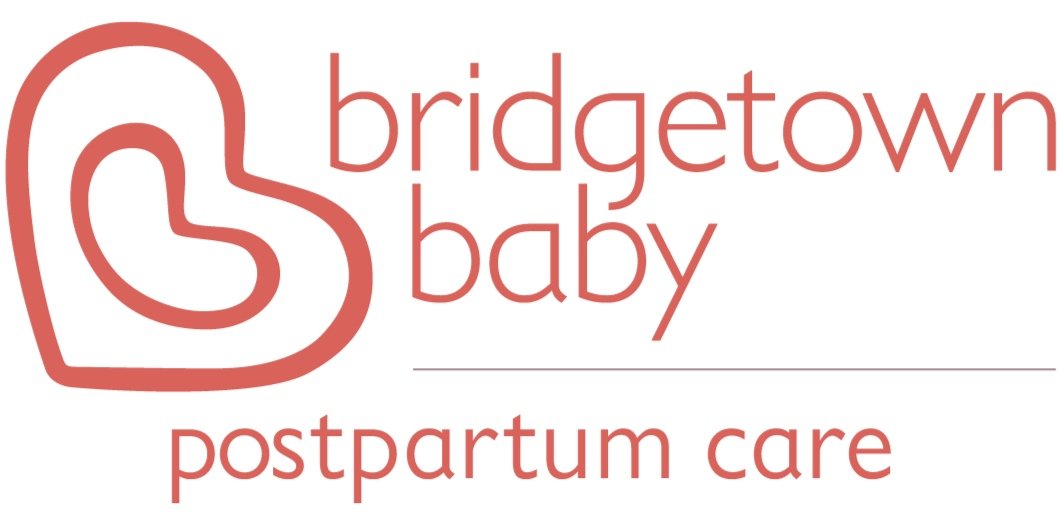Nipple Pain and Breastfeeding?
Image: Simone Berkas
Trusted sources such as the Centers for Disease Control¹ and La Leche League International² tell us that breastfeeding or chestfeeding shouldn’t hurt. But evidence shows that nipple pain remains a major reason that many new parents stop breastfeeding before they intend to. This disconnect between consensus and reality can give new parents the expectation that breastfeeding should not be painful and strong feelings of guilt if nipple pain drives them to stop early.³
Bridgetown Baby’s lead lactation consultant, Sarah Longwell, wants new parents to hear a more nuanced narrative regarding the sensations they may experience while breastfeeding or chestfeeding.
“I think it’s unfair to give parents the expectation that there should be no pain or sensation during a feed,” says Sarah. A recent report published in the International Breastfeeding Journal agrees, stating there’s an “urgent need for more appropriate antenatal education on realistic expectation surrounding breastfeeding to ameliorate cessation rates.”³
For Sarah, it’s not so much a question of if a new parent will experience nipple pain, because “the nipple and breast tissue are being touched and rubbed much more than usual, so we expect lactating parents to experience some degree of nipple tenderness or discomfort.” Rather, the question is when and for how long?
“Pain is so subjective,” she says, “so it can be hard to pinpoint what is going on. When a client reports nipple pain, I'm always glad they reached out so we can work together to determine whether or not those sensations are within the range of normal.”
In these situations, Sarah has a practical way for lactating parents to evaluate the sensations they are experiencing:
“If nipple discomfort occurs at the beginning of a feed, but resolves itself after about 10 seconds, then it’s probably going to get better with some time and positioning adjustments,” she says, “but if the sensation persists beyond two weeks or throughout the entire feed, there is likely more that an IBCLC will be able to investigate.”
In her experience, Sarah finds that nipple pain that persists throughout a feed, causes tissue damage, or extends past a two-week window is “almost always” a latch issue - in that case, parents often benefit from meeting with a board certified lactation consultant to learn more and make adjustments that can help them to reach their breastfeeding or chestfeeding goals.
“We offer all Bridgetown Baby postpartum doula clients the option to meet with a lactation consultant, even prior to giving birth,” Sarah says. “We feel strongly that knowledge is power - when parents understand more about the experience ahead their confidence grows, and they know that they have a good resource to reach out to for help if they should need it.”
The Bridgetown Baby Feeding Warmline makes it easy for any family, in Portland or otherwise, to access feeding support quickly; a board certified lactation consultant will respond within 24 hours, and can advise on quick questions or help to get a virtual or in-person consult set up. Bridgetown Baby feeding support is also covered by select insurance providers.
Sources
US Department of Health and Human Services. (2021, July 22). What to expect while breastfeeding. Centers for Disease Control and Prevention. Retrieved October 3, 2022, from https://www.cdc.gov/nutrition/infantandtoddlernutrition/breastfeeding/what-to-expect.html#:~:text=Pain%20While%20Breastfeeding&text=Sometimes%20pain%20can%20happen%20if,nurse%20to%20figure%20out%20why.
La Leche League International. (2020, August 6). Pain while breastfeeding. La Leche League International. Retrieved October 1, 2022, from https://www.llli.org/breastfeeding-info/mastitis/
Caes, L., Abbott, K. & Currie, S. Exploring women’s perceptions of pain when breastfeeding using online forums. Int Breastfeed J 16, 84 (2022). https://doi.org/10.1186/s13006-021-00426-9


